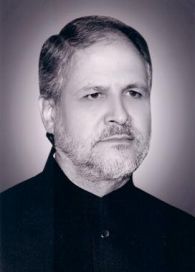 If an elected government had been sworn in, Jung's tenure and the government would have been more or less co-terminus and Jung would have been just the ceremonial head of Delhi. Now, he will run Delhi, pending another round of assembly elections, says Aditi Phadnis
If an elected government had been sworn in, Jung's tenure and the government would have been more or less co-terminus and Jung would have been just the ceremonial head of Delhi. Now, he will run Delhi, pending another round of assembly elections, says Aditi Phadnis
Delhi Lieutenant Governor Najeeb Jung is the kind of person Congress vice-president Rahul Gandhi is looking for: no family association with politics and yet a passion for public service from the day he started working, first as a police officer and later as a bureaucrat; a secular outlook of a kind that belongs to a generation imbued in the ideals of Nehruvian India; and yet, an understanding of corporate needs and requirements, something Jung learnt as joint secretary in the ministry of petroleum and natural gas.
Never in his wildest dreams would Jung ever have imagined that he would occupy 6, Ludlow Castle Road, the original address of Raj Niwas, now the home of the lieutenant general of Delhi, and that too in such politically charged times.
If an elected government had been sworn in, Jung's tenure and the government would have been more or less co-terminus and Jung would have been just the ceremonial head of Delhi. Now, he will run Delhi, pending another round of assembly elections.
Originally from Hyderabad, Jung's family shifted to Delhi before Partition. It was a joint family and they owned the Golcha cinema in Daryagunj, a stone's throw from Raj Niwas.
Jung lost his father early in life and was brought up by his mother and an uncle. The family believed in modern education and he was sent to St Columba's School. From there he went to St Stephen's College where he studied history.
Jung began preparing for the civil service exams the day he got his Bachelor's degree. He cleared the exam in his first attempt and qualified for the Indian Police Service. He joined the service and took the exam again.
This time he made it to the Indian Administrative Service and opted for the Madhya Pradesh cadre. That was 1973. Bobby was running to packed houses and it was the year everyone named his daughter 'Dimple'. George Harrison and friends (Eric Clapton, Bob Dylan, Billy Preston, Leon Russell, Ravi Shankar and Ringo Starr, among others) won the Grammy for the Concert for Bangladesh.
The average inflation was 16.7 per cent. As a mere infant in the civil service, Jung could not have known that Prime Minister Indira Gandhi would suspend fundamental rights and announce an emergency two years later.
Jung's real break came in 1984 when Madhavrao Scindia became the railway minister in the Rajiv Gandhi government. Scindia asked Jung and another officer, Asif Ibrahim (currently director, Intelligence Bureau), to become part of his immediate personal staff.
Scindia did a lot of modernisation of the railways but it was Jung who ran his office. When Scindia became minister for civil aviation in PV Narasimha Rao's tenure, Jung was no longer available: he had become joint secretary (exploration) in the ministry of petroleum and natural gas.
It was here that Jung came into contact with business houses. When his tenure in the petroleum ministry came to an end, he did a stint at the Asian Development Bank in the mid-1990s. His interest in energy took him to Oxford where he did a PhD in energy research.
(Purely as an aside, he flew from Manila first class with his family). He quit the IAS. A corporate outlook helped: he worked as director (energy research) with the Reliance India-funded Observer Research Foundation, having worked in London earlier with Reliance Global Management Services.
But Jung wanted to come back home. He returned in 2008-09 and, after doing this and that, was appointed vice-chancellor of the JamiaMilliaUniversity by then human resources minister, Kapil Sibal, overlooking the claim of Mushir ul Hasan, already in situ.
Jung ran the university with an iron hand, sacked many students and also some teachers. To friends he said new ideas were needed on how to run universities and make them more productive. Then, he was appointed lieutenant governor of Delhi.
Jung inspires strong feelings of loyalty in friends. "He is the sort of Indian we were brought up to be," says a friend. "(We were) taught to believe that the nation comes first, the state must have no caste and no religion, and an unshakeable faith in public institutions."
Jung has demonstrated this in many ways, especially in lifestyle choices: his favourite tipple is single malt that he enjoys unapologetically but his home is still exactly the same sort of open house it used to be 20 years ago.
Jung's strongest point is his collegiate style of working. He will not be 'guided' into signing a paper. He will ask, and if he doesn't know, will always confess that he doesn't know. This means much more consultation. Given that he will have to work with advisors if he has to run Delhi, it will be a useful trait.











